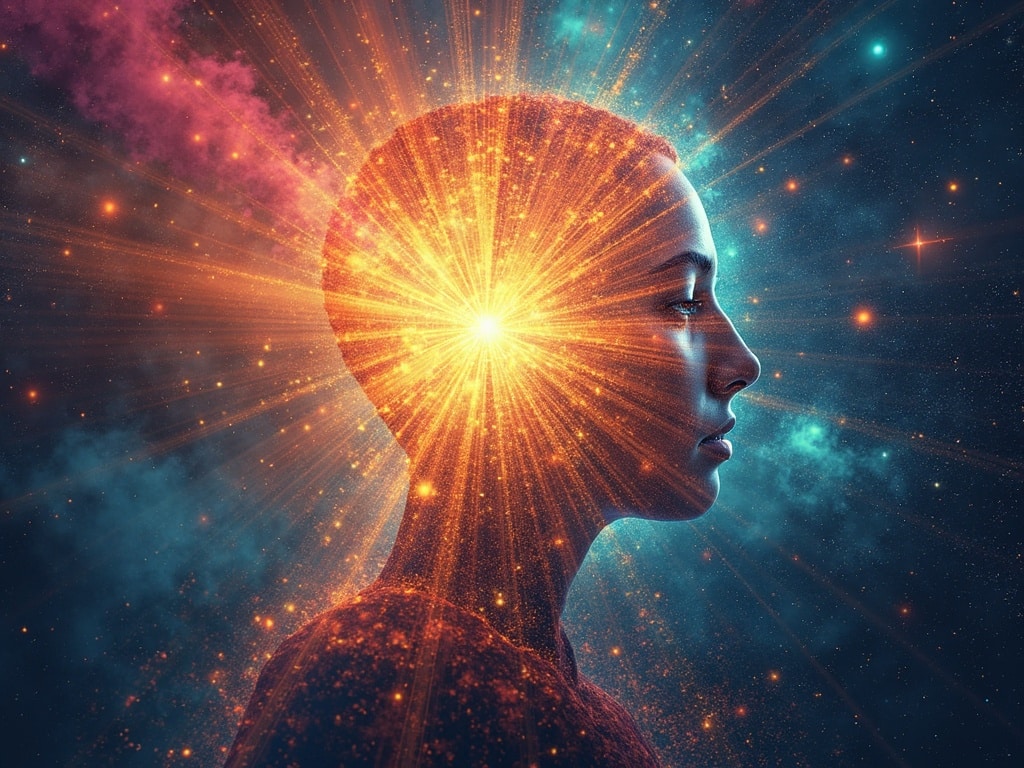What is a Belief System? Unpacking the Foundations of Our Reality
Imagine standing at a crossroads, each path representing a choice, a decision, a way of life. What guides you? What whispers in your ear, urging you forward on one path over another? More often than not, the answer lies within your belief system – the invisible architecture shaping your perceptions and actions. But what *isa belief system, really? It's more than just a collection of opinions; it’s the very bedrock upon which we build our understanding of the world and our place within it.
Decoding the Components of a Belief System
At its core, a belief system is a set of interconnected beliefs, values, ideas, and attitudes that shape an individual's or a group's understanding of reality. Think of it as a mental map, guiding you through the complexities of life. It’s a framework that helps us make sense of our experiences, predict future events, and determine what is right or wrong, good or bad, desirable or undesirable.
Beliefs: The Building Blocks
The fundamental units of a belief system are, unsurprisingly, beliefs. A belief is an acceptance that something exists or is true, often without concrete proof. These can range from simple, everyday assumptions (e.g., The sun will rise tomorrow) to deeply held convictions about the nature of the universe (e.g., There is a higher power).
Values: The Moral Compass
Values are the principles or standards that guide our behavior and judgments. They represent what we consider important and desirable in life. Values provide the framework for what we consider to be virtues like honesty, courage, compassion, and success. Our values influence what we strive for and how we interact with the world.
Ideas: The Conceptual Framework
Ideas are the concepts, thoughts, or notions we hold about the world. These can be drawn from various sources like science or culture. They weave together to form our overall understanding of how things work. Ideas provide context and rationale for our beliefs and values, offering explanations and justifications for our perspectives.
Attitudes: The Emotional Response
Attitudes are our predispositions to respond in a certain way toward people, objects, or situations. They are often based on our beliefs, values, and experiences, and can be positive, negative, or neutral. Attitudes influence our emotions and behaviors, shaping how we react to the world around us.
The Origins and Development of Belief Systems
Belief systems aren’t formed in a vacuum. They’re cultivated over a lifetime through a complex interplay of factors, starting from the moment we enter the world. Understanding these influences can shed light on why we believe what we do.
Family and Upbringing
Our earliest experiences within our family structure often lay the groundwork for our initial beliefs. Parents, siblings, and close relatives instill values, traditions, and perspectives that become ingrained in our subconscious. We absorb their beliefs about religion, politics, social issues, and even simple things like the “right” way to load the dishwasher.
Culture and Society
The broader culture and society we live in also exert a powerful influence on our belief systems. Cultural norms, social expectations, and shared values shape our understanding of the world and our place in it. Media, education, and social interactions reinforce these cultural influences, solidifying certain beliefs and challenging others.
Personal Experiences
Our individual experiences play a crucial role in shaping and refining our belief systems. Traumatic events, significant achievements, and meaningful relationships can all have a profound impact on what we believe. We learn from our mistakes, adapt to new situations, and develop a more nuanced understanding of the world through our personal journey.
Education and Information
Formal education and access to information can broaden our horizons and challenge our existing beliefs. Exposure to different perspectives, scientific discoveries, and historical accounts can lead us to question our assumptions and adopt new beliefs. Critical thinking skills are essential for evaluating information and forming well-reasoned beliefs.

Why Belief Systems Matter
Our belief systems aren't just abstract concepts; they have tangible consequences in every aspect of our lives. They influence our decisions, relationships, and overall well-being. Understanding the power of belief systems can empower us to live more authentically and purposefully.
Decision-Making
Every decision we make, from the mundane to the monumental, is influenced by our belief system. Our beliefs shape our priorities, values, and goals, guiding us toward choices that align with our worldview. Whether it's choosing a career path, deciding on a romantic partner, or making a financial investment, our beliefs are always at play.
Relationships
Our belief systems also affect the ways we interact with others. Shared beliefs can foster connection, understanding, and empathy, while conflicting beliefs can lead to tension, conflict, and division. Understanding the beliefs of others, even when they differ from our own, is essential for building strong and healthy relationships.
Mental and Emotional Well-being
Our beliefs about ourselves and the world around us can have a profound impact on our mental and emotional well-being. Positive beliefs can foster optimism, resilience, and self-confidence, while negative beliefs can lead to anxiety, depression, and self-doubt. Cultivating a positive and empowering belief system is essential for mental and emotional health.
Challenging and Changing Belief Systems
While our core beliefs can be deeply ingrained, they are not necessarily fixed. With conscious effort and a willingness to reconsider our assumptions, we can challenge and change our belief systems. This process can be transformative, leading to greater self-awareness, personal growth, and a more fulfilling life.
Self-Reflection
The first step in challenging our belief systems is to become aware of them. This requires honest self-reflection and a willingness to examine our assumptions and biases. Asking ourselves questions like, Why do I believe this? and What evidence supports this belief? can help us uncover the roots of our beliefs and identify areas where we may be holding on to outdated or limiting perspectives.
Seeking New Perspectives
Challenging our belief systems also involves seeking out new perspectives and exposing ourselves to different ideas. This can involve reading books, attending workshops, engaging in conversations with people who hold different beliefs, and traveling to new places. The goal is to broaden our horizons and expand our understanding of the world.
Cognitive Restructuring
Cognitive restructuring is a technique used in cognitive behavioral therapy (CBT) to identify and challenge negative or distorted thoughts and beliefs. This involves examining the evidence for and against a particular belief, identifying cognitive biases, and developing more realistic and balanced perspectives.
Mindfulness and Meditation
Mindfulness and meditation practices can help us become more aware of our thoughts and emotions without judgment. This can allow us to observe our beliefs more objectively and identify patterns of thinking that may be contributing to negative emotions or limiting behaviors. Mindfulness can also help us cultivate a sense of detachment from our thoughts, making it easier to challenge and change them.
Embracing the Power of Belief
Understanding what a belief system is – its components, origins, and influence – offers a powerful tool for self-discovery and personal transformation. By consciously examining our beliefs, challenging limiting perspectives, and embracing new possibilities, we can unlock our full potential and create a life that is aligned with our deepest values and aspirations. The journey of belief is a lifelong exploration, a continuous process of learning, growing, and evolving into the best version of ourselves. So, dare to question, dare to explore, and dare to believe in the power within you to shape your own reality.

